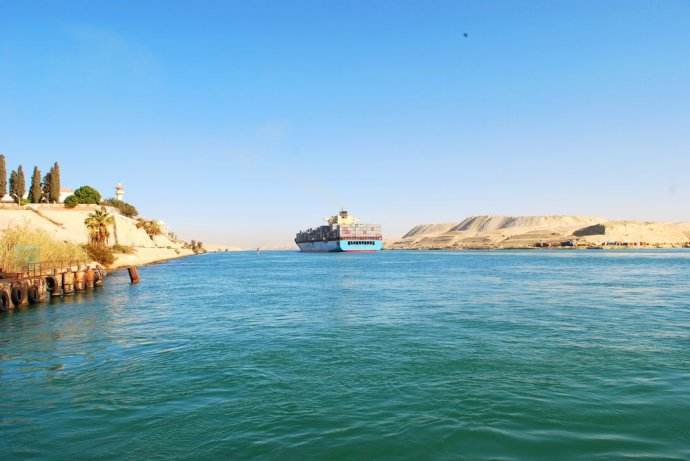(单词翻译:单击)
听力文本
This is Scientific American — 60-Second Science. I'm Christopher Intagliata.
The Mediterranean Sea is home to some 17,000 native species. But it's also home to a growing number of non-native species: 756 at last count. Now, 756 may not sound like a lot, compared to 17,000.
"But this is not arithmetic." Bella Galil, a naturalist at Israel National Center for Biodiversity Studies in Tel Aviv. "Those invasive species have a large population, and they rend apart the native food web. They disturb an already stressed community."
The invaders she's talking about are central casting for an underwater horror movie. Take the nomadic jellyfish, in huge swarms 60 miles long, which sent hundreds of people to Turkish hospitals a few summers back. Or a type of pufferfish, extremely poisonous, that occasionally gets fished out, and lands at fish markets by mistake.

Galil says these bad guys, and many others, have invaded the Mediterranean through the ever-widening Suez Canal. As the canal grows, so do the number of non-native species. And it's a dilemma that's not easily addressed. "It's a Humpty-Dumpty sort of problem. Once it's broke it's broke. We cannot re-engineer it. It's too complex for us." Galil and her team outline the scope of the problem in the journal Management of Biological Invasions.
Installing locks or salinity barriers could help block future invasions, she says—those methods have worked in other canals. But that's an engineering and governance issue. "As biologists we've raised our voices. The community is aware of it. The problem is to go beyond this. And to go beyond this we need to go into the regional bureaucracy and the industry." It'll undoubtedly cost money, too. One motivating factor for taking action: Mediterranean beaches are big business. And swarms of jellyfish can quickly drive away the customers.
Thanks for listening for Scientific American — 60-Second Science Science. I'm Christopher Intagliata.
参考译文
这里是科学美国人——60秒科学。我是克里斯托弗·因塔利亚塔。
地中海有约1.7万种本土物种。同时地中海的非本土物种也越来越多:现在至少有756种。相比于1.7万这一数字,756听起来可能并不算多。
“但这不是算术。”贝拉·加利尔是位于特拉维夫的以色列国家生物多样性研究中心的科学家。“这些入侵物种数量很大,它们撕裂了本地食物网。而且使本就紧张的社区更加不安。”
她所谈到的入侵者是水下恐怖电影的中心角色。比如游来游去的巨型水母群,这种水母群大约有60英里长,几个夏天以来,水母已致数百人被送往土耳其医院接受治疗。又或者是一种有剧毒的河豚,这种河豚偶尔会被打捞上来,误送到鱼市去出售。
加利尔表示,这些有害的生物和其他生物通过不断扩大的苏伊士运河入侵地中海。运河的规模在不断扩大,而外来物种的数量也在随之增加。这是一个不容易解决的困境。“这是一个类似于损坏后就无法修复的问题。一旦坏了,那就是坏了。我们不能重新设计。对我们来说这太复杂了。” 加利尔和她的团队在《生物入侵管理》期刊上概述了这一问题的范围。
安装水闸或设置盐性屏障可能有助于阻止其他物种再入侵,她说,这些方法在其他运河有效果。但是这是一个与工程和治理有关的问题。“作为生物学家,我们表达了我们的观点。社会也意识到了这个问题。但是这还不够,我们需要地区性官僚机构和行业的帮助。”毫无疑问,这也要花钱。采取行动的其中一个激励因素:地中海海滩会吸引来大生意。可是水母群可能会迅速地把顾客赶走。
谢谢大家收听科学美国人——60秒科学。我是克里斯托弗·因塔利亚塔。
译文为可可英语翻译,未经授权请勿转载!
重点讲解
重点讲解:
1. compared to 与…相比;和…比起来;
例句:What I saw that day in Madrid was tame compared to what happened in Italy and Brazil.
我在马德里那天的所见所闻与发生在意大利和巴西的情况相比,只不过是和风细雨而已。
2. by mistake 错误地;
例句:She took my umbrella by mistake.
她误拿了我的伞。
3. be aware of 注意到的;察觉到的;意识到的;
例句:They were aware of a budding crisis.
他们意识到萌发中的危机。
4. drive away 使不愿久留;使想离去;
例句:Patrick's boorish rudeness soon drove Monica's friends away.
帕特里克的粗鲁无礼很快使得莫妮卡的朋友们想走了。


